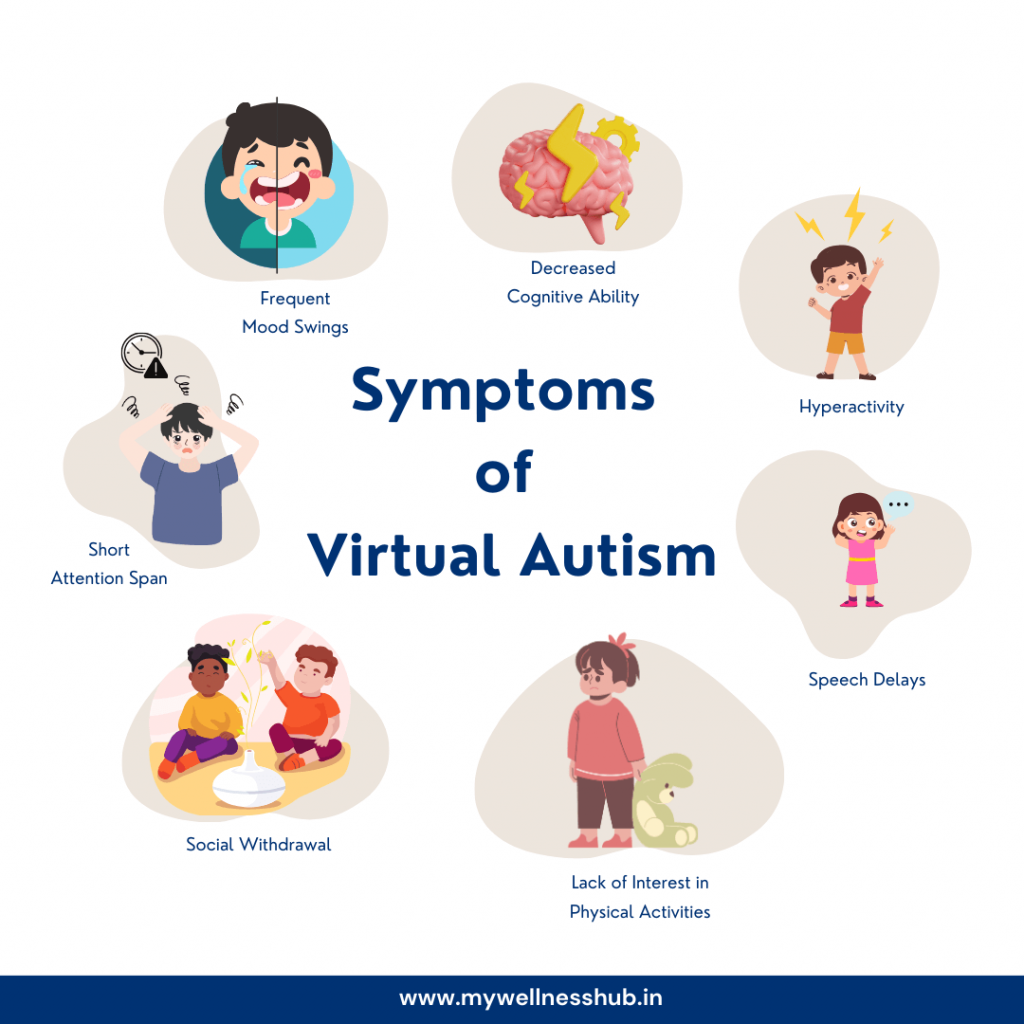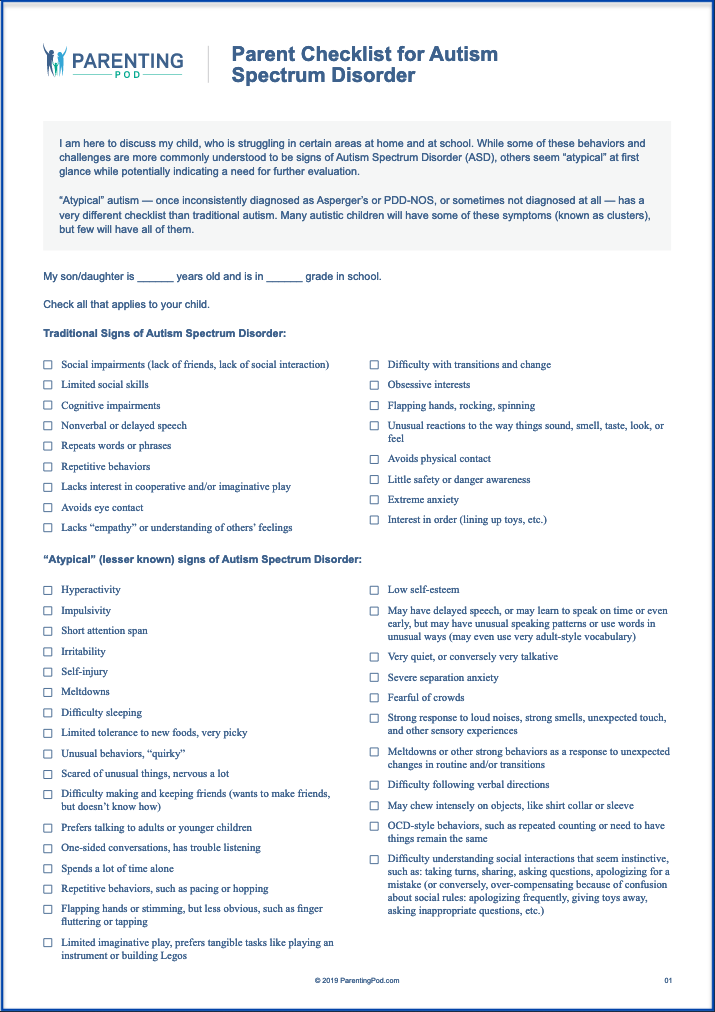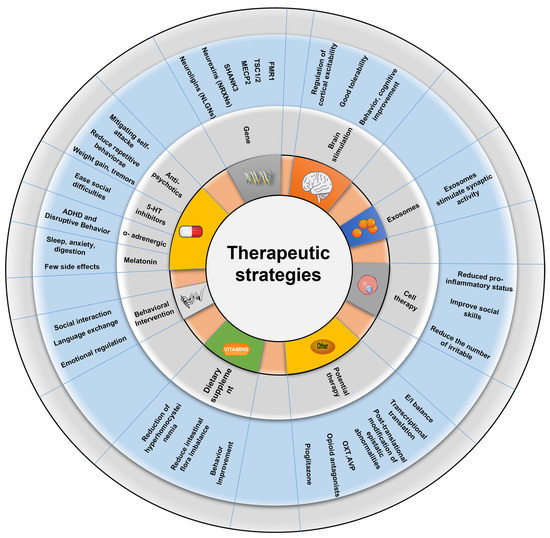How an Aba Therapist Near Me, you’ll see measurable progress in social and communication growth
How an Aba Therapist Near Me, you’ll see measurable progress in social and communication growth
Blog Article
Key Signs and Symptoms to Recognize in Individuals With Behavioral Autism
When you experience someone with behavioral autism, recognizing key signs and symptoms is important. You might discover challenges in social interactions and interaction, along with a solid requirement for routines. In addition, sensory level of sensitivities can lead to overwhelming experiences. Recognizing these traits can boost your assistance and treatments, but there's more to reveal regarding exactly how these behaviors show up in day-to-day circumstances. Let's discover what these indications truly look like.
Challenges in Social Interactions
When you interact with a person on the autism spectrum, you might see they battle with social hints and communication. These challenges can make social communications really feel frustrating for them. You might see them preventing eye get in touch with or standing too close or also away throughout conversations, which can develop misunderstandings. They could not detect body language or face expressions, making it harder for them to evaluate just how others are feeling.
In addition, you may locate that they choose routines and acquainted settings, which can restrict their willingness to engage in brand-new social situations. They could talk concerning their rate of interests in wonderful detail without observing if you're interested when they do involve. This can lead to one-sided conversations that leave you really feeling separated. Understanding these difficulties can assist you come close to communications with compassion and patience, fostering a much more comfy atmosphere for both of you.
Trouble With Verbal and Non-Verbal Interaction

Non-verbal interaction can be a lot more tough. You might see an absence of eye get in touch with or limited usage of gestures, which can make communications feel unpleasant. Facial expressions might not always straighten with the conversation, leading to complication about their sensations. Recognizing these indicators is vital, as it helps you much better assistance and engage with people on the autism spectrum. By recognizing their communication challenges, you can cultivate much more significant connections and give a much more encouraging environment.
Recurring Behaviors and Routines
Communication obstacles often go along with various other indicators of autism, such as recurring behaviors and a strong preference for routines. You may see that individuals with autism frequently take part in details, repetitive activities, like hand-flapping, rocking, or repeating phrases. These habits can supply convenience and a feeling of control in a commonly overwhelming world.
Routines are similarly crucial; several people thrive when they follow a structured timetable. You might find that changes to these routines can result in significant distress. As an example, if they have a daily routine of eating morning meal at a particular time or following a certain route to school, any disruption can create anxiousness.
Recognizing these patterns helps you recognize their habits and offer support. By suiting their requirement for routine and permitting recurring actions, you can create an extra comfortable environment that reduces their obstacles.
Sensory Level Of Sensitivities

Common Sensory Triggers
Sensory level of sensitivities can considerably influence every day life for people with autism, as certain stimuli often activate frustrating reactions. Usual sensory triggers include loud noises, bright lights, and strong scents. You could discover that abrupt noises, like alarms Full Article or alarms, create anxiety or distress. Likewise, fluorescent lights in stores can feel rough and uncomfortable. Structures can additionally play a significant function; harsh textiles or particular food textures may be intolerable for you. Furthermore, crowded locations can bewilder your detects, making it tough to concentrate or relax. Recognizing these triggers can aid you handle your environment better. By knowing what impacts you, you can take actions to decrease pain and improve your everyday experiences.
Behavioral Reactions Described
Comprehending your behavioral reactions to sensory sensitivities is vital, as they usually reveal how you interact with the world. You might see that particular noises, lights, or structures overwhelm you, bring about anxiousness or discomfort. When confronted with these stimulations, you may withdraw, cover your ears, or perhaps respond aggressively. These responses aren't simply quirks; they're your means of handling overstimulation. You may additionally discover yourself looking for particular sensory experiences, like deep stress or peaceful environments, to aid ground yourself. Recognizing these patterns assists you recognize your requirements better and can direct exactly how you communicate them to others. By recognizing your sensory sensitivities, you can function towards developing an atmosphere that really feels a lot more manageable and comfortable for you.
Coping Methods Review
Identifying your sensory level of sensitivities is simply the very first step; now it's time to check out coping techniques that can assist you manage those experiences efficiently. Begin by creating a sensory toolkit customized to your demands. Developing a structured routine can also provide predictability, reducing anxiousness around sensory overload.
Limited Passions and Focus
While numerous individuals create a large range of passions, those with autism usually show limited interests and an intense focus on details topics. You might see that a person with autism can invest hours delving right into their favored subject, whether it's a particular sort of train, a certain film, or a clinical idea. This intense emphasis isn't just a leisure activity; it can end up being a main part of their identification browse around these guys and social communications.
You may discover that discussions revolve around these rate of interests, and they might struggle to engage in more comprehensive topics. By comprehending and recognizing these restricted rate of interests, you can cultivate a supportive atmosphere where they really feel valued and understood, enabling for even more meaningful links and communications.
Emotional Guideline Troubles
People with autism frequently face challenges in emotional regulation, which can be influenced by their intense concentrate on certain passions. You might observe that when a person is deeply participated in a preferred task, they can experience solid emotions, whether excitement or irritation. When things don't go as intended., this strength in some cases makes it hard for them to change gears or manage their sensations - Aba Therapist Near Me.

Variability in Developmental Landmarks
When it comes to developing turning points, you'll observe that people with autism usually reveal a vast array of irregularity. You could see a youngster succeed in language abilities yet battle with social communications.
It's vital to identify that each person's trip is one-of-a-kind. Some might create intricate abilities early, just to deal with difficulties in the future. Others may take longer to achieve basic milestones yet after that prosper in details locations. Observing these patterns can aid you comprehend their staminas and needs better.
Frequently Asked Inquiries
Just How Is Autism Identified in Children and Grownups?
To identify autism in children and adults, professionals examine behavior, interaction skills, and social interactions. They frequently make use of standard tests, meetings, and observations to determine if a specific meets the standards for autism spectrum disorder.
Are There Different Kinds Of Autism Spectrum Disorders?
Yes, there are various sorts of autism range conditions, consisting of click for more info Asperger's syndrome and prevalent developmental disorder-not or else specified. Each type differs in seriousness and characteristics, so comprehending these distinctions can assist you far better support people with autism.
What Therapies Work for Individuals With Autism?
When thinking about efficient treatments for individuals with autism, you'll discover alternatives like Applied Behavior Analysis, speech treatment, and occupational therapy. Each strategy can help enhance interaction, social abilities, and daily working customized to specific needs.
Can Individuals With Autism Lead Independent Lives?
Yes, people with autism can lead independent lives. With the appropriate support, skills training, and sources, you can aid them develop self-sufficiency, handle day-to-day tasks, and flourish in different settings, fostering their self-reliance.
Just How Can Family Members Support Loved Ones With Autism?
You can support your liked ones with autism by producing an organized setting, encouraging their interests, practicing persistence, cultivating interaction, and advertising social abilities. Celebrate their accomplishments, regardless of how small, and develop a helpful neighborhood.
Although lots of people on the autism range can utilize and comprehend language, they usually encounter significant difficulties with both non-verbal and verbal communication. Recognizing these signs is important, as it helps you better support and involve with people on the autism spectrum. You might notice that individuals with autism often involve in certain, repeated activities, like hand-flapping, shaking, or duplicating phrases.Sensory sensitivities can considerably influence day-to-day life for individuals with autism, as certain stimulations usually cause overwhelming reactions.When it comes to developing turning points, you'll discover that individuals with autism often reveal a large range of irregularity.
Report this page